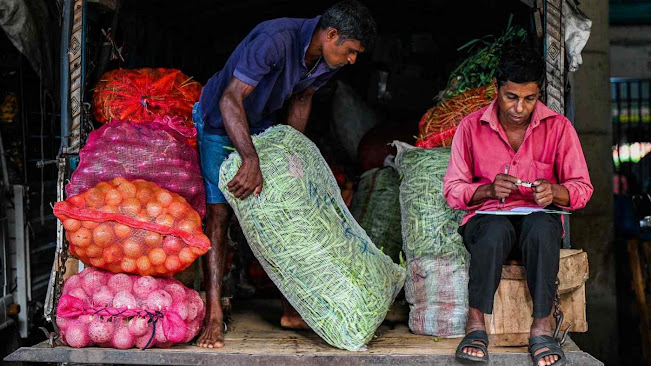The fragile global economy
World Bank and IMF meetings must tackle financial and climate risks
The editorial board
 Higher borrowing costs are hitting developing countries that have amassed enormous debts dealing with the pandemic and high food and energy prices © Ishara S Kodikara/AFP/Getty Images
Higher borrowing costs are hitting developing countries that have amassed enormous debts dealing with the pandemic and high food and energy prices © Ishara S Kodikara/AFP/Getty ImagesOver the past three years the global economy has been subjected to an unprecedented series of shocks.
After the pandemic struck, Russia’s invasion of Ukraine brought added disruption.
Both contributed to a cost of living crisis, with central banks raising interest rates rapidly to contain runaway inflation.
Arguably, the international economic system has displayed remarkable resilience.
The most downbeat forecasts for a widescale financial crisis and a chain of debt defaults by low income countries has been avoided so far.
But the global economy is badly scarred.
The IMF projects the weakest global medium-term growth prospects for over 30 years.
Policymakers gathering at the World Bank/IMF spring meetings this week have their work cut out to stabilise the global economy and shift it on to a higher growth path.
The IMF forecasts global growth to be 2.8 per cent this year, down slightly on expectations in January.
It also places a 25 per cent chance that growth could fall below 2 per cent.
Indeed, price pressures are proving more persistent than anticipated and economic conditions have become more fragile.
A top official at the IMF warned of “acute” risks to the global financial system, and many advanced economies are expected to be sluggish this year, as high interest rates squeeze credit.
Getting the global economy back on track will mean grappling with several pressing risks.
Although some calm has returned to the banking system following the collapse of three US banks and Credit Suisse’s emergency takeover by UBS in March, financial markets remain on shaky ground.
Central banks can see the end of this rate hiking cycle, but the rapid reversal of a decade of cheap money is exposing vulnerabilities.
There are concerns over the impact of high interest rates on commercial real estate and the non-bank sector.
Central bankers face a balancing act: they must limit further instability and ensure high inflation does not become entrenched.
At the same time higher borrowing costs are hitting developing countries that have amassed enormous debts dealing with the pandemic and high food and energy prices, exacerbated by a strong dollar.
Around 60 per cent of low-income countries are at high risk of or already in debt distress.
The poorest countries also face the largest bills for servicing foreign debts in 25 years.
High debt burdens complicate the task for developing countries which need over $2tn a year by 2030 to cut emissions and deal with damage from climate change.
Boosting efforts to tackle global warming is paramount to prevent people in poor countries falling deeper into poverty, and to drive growth and job creation.
Geopolitical risks are also undermining global prospects.
The IMF finds that the long-term cost of trade fragmentation, as a result of tensions between the US and China, could be around 7 per cent of global GDP.
Barriers to trade, investment and technology transfer would limit growth, particularly in poorer countries.
Policymakers will need to mitigate these risks.
Regulators will have to remain vigilant to the knock-on impacts of high interest rates; the recent banking crisis also ought to be a wake-up call to improve bank and non-bank regulation.
There is hope that progress on a framework to restructure developing world debt in an orderly manner across creditors, including China, is possible at the meetings.
Efforts to mobilise more financing for climate change from international financial institutions, both through more efficient use of their balance sheets and via private sector partnerships are vital too.
The complex and connected challenges facing countries require an ambitious and co-operative global response.
This week’s meetings are a crucial moment to set that in motion.
0 comments:
Publicar un comentario